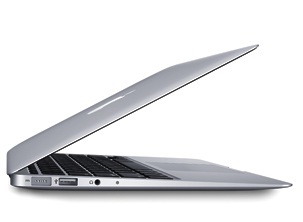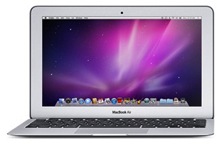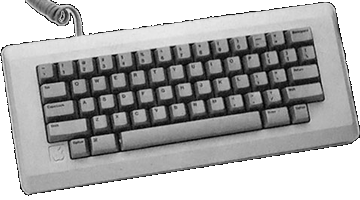MacBook Air (11-inch, Late 2010)

Essentials
Family: MacBook Air
Codename: ?
Gestalt ID: 406
Minimum OS: 10.6.4
Maximum OS: 10.10.4
Introduced: October 2010
Terminated: July 2011
Processor
CPU: Intel Mobile Core 2 Duo (SU9xxx)
CPU Speed: 1.4 GHz (1.6 GHz BTO)
CPU Cores: 2
FPU: integrated
Bus Speed: 800 MHz
Register Width: 64-bit
Data Bus Width: 64-bit
Address Bus Width: 64-bit
Level 1 Cache: 32 kB data, 32 kB instruction
Level 2 Cache: 3 MB on-processor
ROM: EFI
Onboard RAM: 2 GB (4 GB BTO)
Maximum RAM: 2 GB (4 GB BTO)
Video
Screen: 11.6" LED-backlit TFT
GPU: NVIDIA GeForce 320M
VRAM: 256 MB shared (see notes)
Max Resolution: 1366x768
Video Out: Mini DisplayPort
Camera: FaceTime
Storage
Flash Drive: 64/128 GB
Optical Drive: optional external
Input/Output
USB: 2 2.0
Audio Out: stereo 24 bit mini, HDMI via Mini DisplayPort
Speaker: mono
Microphone: mono
Networking
Ethernet: via USB adaptor
Wi-Fi: 802.11a/b/g/n
Bluetooth: 2.1+EDR
Miscellaneous
Power: 45 Watts
Dimensions: 0.11-0.68" H x 11.8" W x 7.56" D
Weight: 2.3 lbs.

Notes
The MacBook Air's graphics chipset used a portion of main memory as VRAM. Though reported as a 256 MB graphics system, this was actually a minimum. Actual usage varied with graphics load, resulting in slightly less RAM available for system use.
The MacBook Air (11-inch, Late 2010) was introduced in October 2010, alongside the larger MacBook Air (13-inch, Late 2010), and represented a significant strategic and technological shift in Apple's long-term notebook strategy, away from optical and hard disks and toward internet-based services and flash-based storage. At 2.3 pounds, it was also the smallest fully-functional Apple laptop ever shipped, and was priced aggressively in a clear assault on the PC "NetBook" market.
The MacBook Air (11-inch, Late 2010) shipped with a slower processor and less storage than its predecessor, the MacBook Air (Mid 2009), it improved on everyday performance with a faster graphics sub-system, and better-performing flash-based storage. It shipped in two configurations:
- Dual-core 1.4 GHz, 64 GB SSD, 2 GB of RAM, $999
- Dual-core 1.4 GHz, 128 GB SSD, 2 GB of RAM, $1199
Build-to-order options included 4 GB of onboard RAM (no aftermarket RAM upgrade was possible), a 1.6 GHz processor, 256 MB of flash storage (for the high-end model), and an external SuperDrive. The MacBook Air (11-inch, Late 2010) was replaced less than a year later with the faster MacBook Air (11-inch, Mid 2011).
Picture Credits:
Apple, Inc.
